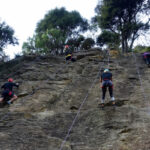Made in Fiji: why it makes sense
Utilising Fiji’s ‘near shore’ manufacturing capability makes economic sense for New Zealand companies, even more so in a world torn apart by Covid-19. For Kiwi companies planning their short or […]
Utilising Fiji’s ‘near shore’ manufacturing capability makes economic sense for New Zealand companies, even more so in a world torn apart by Covid-19.
For Kiwi companies planning their short or long-term manufacturing strategy there are two words they probably haven’t factored in, but in their own interests need to. Those words are ‘friendly Fiji’ – but they could just as easily be ‘flexible Fiji’.
Peter Rudd, Manager Trade and Investment (NZ) for the Fiji Trade Commission Australia & New Zealand, says it makes sense for New Zealand businesses to outsource manufacturing to Fiji as, aside from cultural ties and a shared language, it is the strongest near source, cost-effective option.
Rudd says manufacturing in Fiji offers unique advantages, including tax incentives, and making products stand out in the global marketplace simply by being made there.
And while Kiwis understandably love New Zealand-made goods, they also favour products made in Pacific countries over those from China or Southeast Asia.
“Due to the close ties between New Zealand and Pacific Island nations, Kiwis view purchasing Fijian-made goods positively and see it as supporting a neighbour,” he says.
Fiji has long proven it can produce quality textiles, pharmaceuticals, beauty products, as well as food and beverages – not just for New Zealand, but for the world. Big brands such as Kookai and Douglas Pharmaceuticals use Fiji as a manufacturing base, taking advantage of the central, convenient location and cost advantages.
Other companies such as Pure Fiji and Fiji Water focus their entire branding around their Pacific Island paradise origins – which resonates so well with Kiwi consumers.
Companies ready to consider ‘near shore’ manufacturing opportunities in Fiji should weigh up whether to utilise local materials over imported ones, suggests Rudd. “One reason why many successful beauty products are made in Fiji is the abundance of natural resources found there that can be used as ingredients – such as noni, coconut and nama.”
Fijian flexibility also came to the fore during the Covid-19 pandemic, with United Apparel producing reusable face-masks and both Douglas Pharmaceuticals and Pure Fiji manufacturing hand sanitiser. The virus’s impact on the population has been minimal, and at the time of writing Fiji has clocked up four months without community transmission, allowing ‘business as usual’ for most of the manufacturing sector.
“In fact some manufacturers have been extremely busy with orders as companies re-evaluate their over-reliance on manufacturing in countries such as China, and diversify their operations,” explains Rudd. Sea-freight services have largely managed to escape the covid disruption too and are managing to continue as normal, he adds.
Sold on Fiji
With its 130+ staff, state-of-the-art production facility, large laboratory, and now in its 21st year of operation in Nadi, New Zealand-headquartered Douglas Pharmaceuticals understands the Fijian manufacturing conditions well. It’s a great example of the capability and versatility of the sector, says Rudd.
“Douglas Pharmaceuticals has managed to prove Fiji’s manufacturing versatility especially during the pandemic – exporting 25 percent more to New Zealand from February to July this year than the same period in 2019.”
The company’s Fiji GM Wayne Lancaster says their main advantage is the supportive government and board, progressive legislative environment, and points out that, in return, the company delivers solid investment in both training and in the community.
Labour prices are reasonable; the workforce is well-educated, and individual employees have a great attitude and disposition to the job, he adds. The company even sponsors staff through university. Significant investment in training and developing manufacturing capability has been critical to their success.
“Most people also don’t realise that from a shipping perspective Fiji is at the centre of the world. It’s considerably closer to the US market than New Zealand, and close to Asia, and the shipping lines are well managed,” says Wayne Lancaster. “All of which is great for Douglas Pharmaceuticals because we’ve grown significantly over the past couple of years, produce a wide range of products for ourselves and on contract, and export to four countries out of Fiji.”
Wayne believes now is a good time to investigate the Fijian manufacturing opportunity, with the Covid-affected tourism industry having to lay off workers and import duties half of what they were pre-pandemic.
His advice for newcomers is to be self-sufficient and go in with your eyes wide open. “While it will be challenging, you’ll have a supportive government behind you.”
Fulfilling and successful
Robert Cromb, MD of garment manufacturer Kookai, says its Fiji operation has been pivotal to their success in growing the business. Kookai started with 40 employees 20 years ago and today employs close to 1000 locals at its highly automated facility. It ships some 1.5 million garments per year – as well as bespoke orders pre-packed for each Kookai store every week and with all logistics handled in Fiji.
“The Fijian people are absolutely delightful to work with. They always have a smile on their faces,” says Cromb. “So there’s a lot of love that goes into our product.”
He says although there are the usual issues and challenges to work through, beyond that the capacity is comparable once the regularity and economies of scale in production is reached.
“By all measure our Fiji operation has been a fulfilling and successful venture.”
United Apparel is another manufacturer with a long track record in Fiji, with exports to Australia, New Zealand and the Pacific. It is pursuing opportunities in the medical apparel industry once the supply challenges caused by covid are ironed out, but is known for its expertise across a wide range of garments, including corporate uniforms, workwear and school uniforms.
United Apparel has been an important part of Fiji’s textile, clothing and footwear sector since 1989 and is a multiple winner of the Prime Minister’s Export Awards.
MD Kaushik Kumar says their production facility is WRAP-certified (Worldwide Responsible Accredited Production) which assures a safe, legal and ethical manufacturing process.
“This provides clients with the added advantage of proving that their products are ethically manufactured. Our certification also assists clients to secure contracts which require ethical sourcing.”
Meanwhile, a leading light in the local manufacturing of beauty products continues to be Pure Fiji – the company behind the Pure Fiji and Reniu brands. The Fijian-owned and operated company manufactures natural products such as skincare, fragranced oil and spa products, while also offering full contract manufacturing services and facilities for overseas clients, including a well-equipped laboratory.
There is no doubt that Fiji remains an attractive destination for near shore manufacturing and deserves closer investigation as soon as covid restrictions allow.
Businesses wanting to explore and discuss manufacturing options in Fiji are advised to contact the Fiji Trade Commission to New Zealand.
For more information go to www.investinfiji.today



